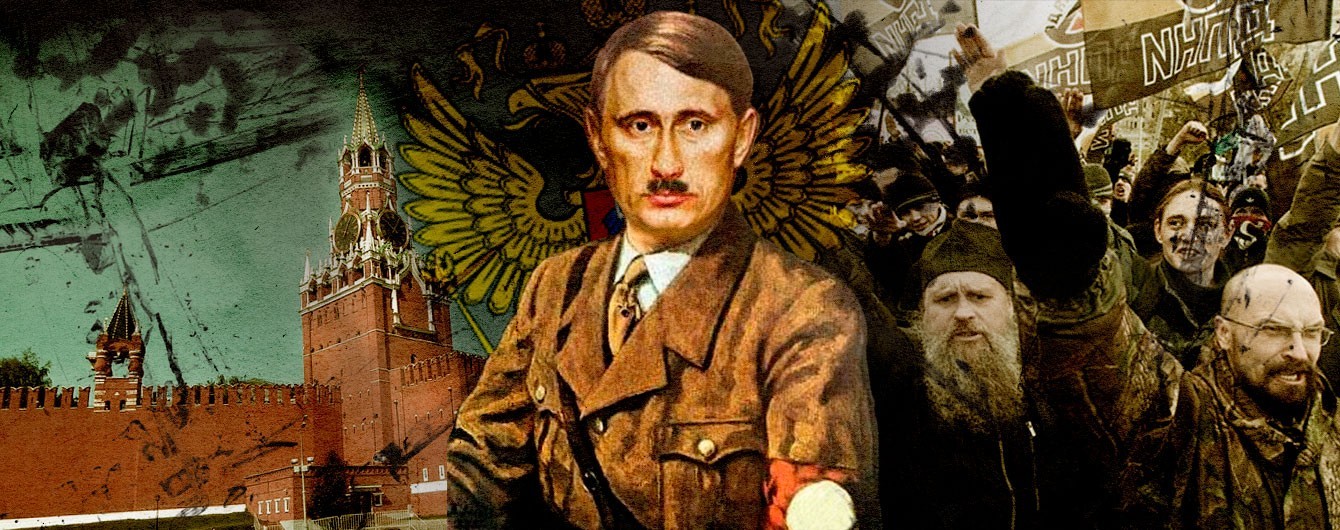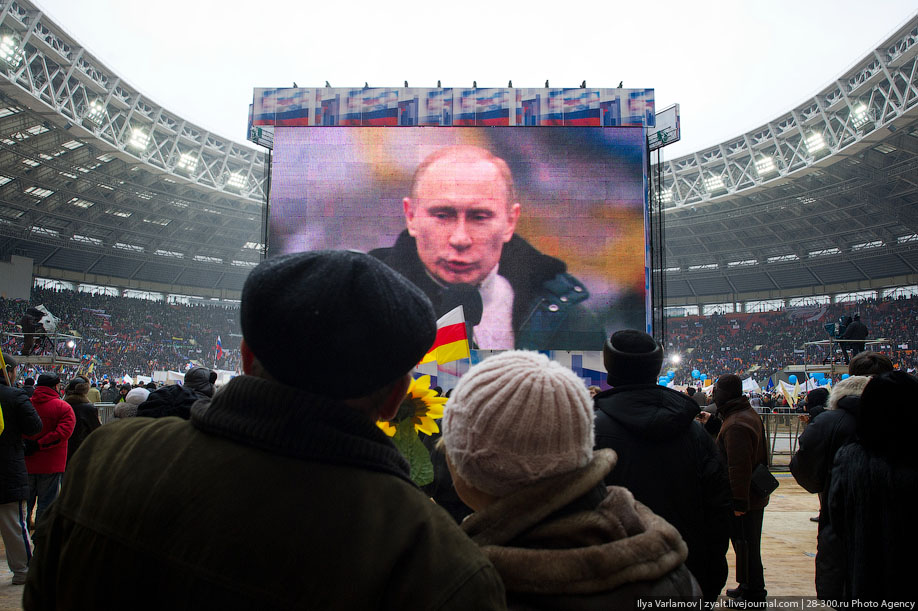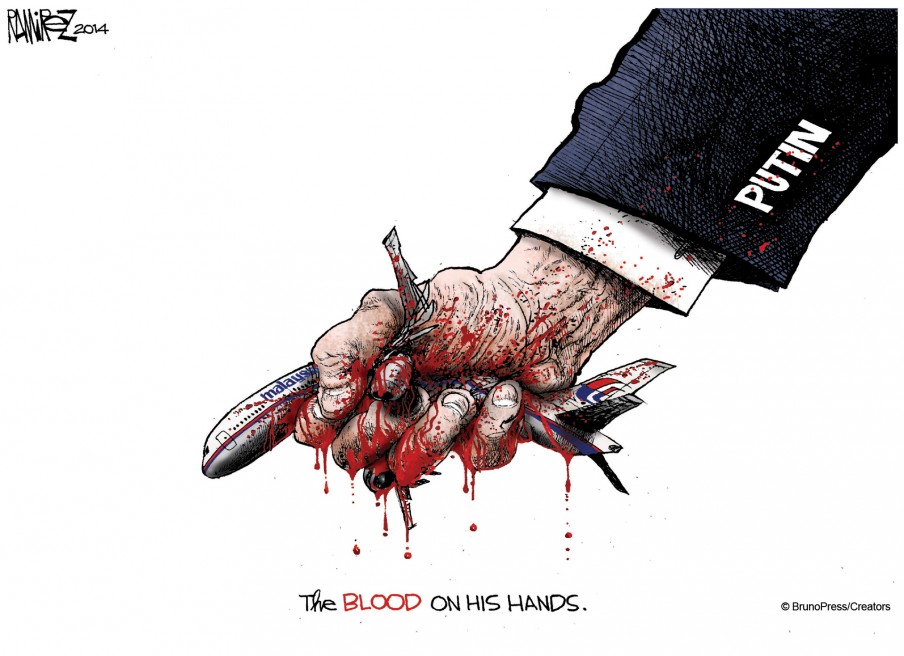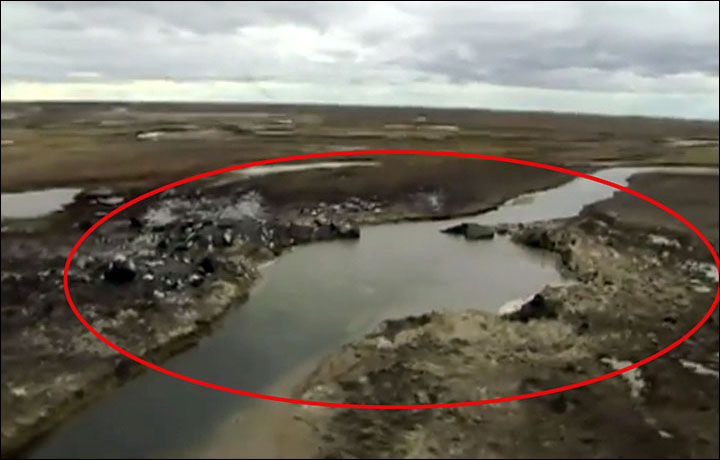Vladimir Putin is leading Russia toward fascism at an ever accelerating rate, the result, Israeli analyst Avraam Shmulyevich said, of the failures of his as yet still weak dictatorship to solve his country’s problems and of the fact that ever more “active” members of Russian elites can see this and are worried about it.
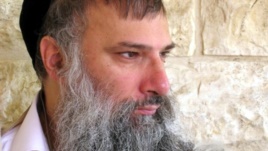
“Of course,” Shmulyevich says, “Putin would prefer to do nothing;” but such an approach could lead to “the rapid and unexpected collapse of the regime” given the existence of the numerous challenges it faces, challenges that “the stagnation paradigm” can’t address.
Facing the choice between collapse and modernization, Putin will choose the latter but not the democratic transit that would be the more effective course but rather via “a mobilized dictatorship,” not only because of his own personal views, but also because there is no “social demand” for the alternative: Russians are prepared to remain “cogs” in the state machine.
Historically, Shmulyevich says, “the population of Russia is inclined to an authoritarian ideology and it now will hardly choose that of a democratic transition.” In the 1990s, Russia was relatively free, but in a few years, Putin suppressed just about all freedoms and he didn’t need “mass arrests and political repression” of the kind his predecessors had to use.
Russia’s “main problem,” the Israeli analyst continues, is its “extraordinary centralization.” But Russians at all levels are convinced that everything must be held in “one ‘fist’ which is associated with Moscow.” Any decentralization in their view threatens the disintegration and collapse of Russia. Putin has played to this and won.
Putin has in fact been quite “open” about this. His “first goal,” he has said, “is the restoration of the greatness of Russia in its military and territorial aspects.” To that end, he began with the modernization of the military and now he is putting the entire Russian economy at the service of the armed forces.
At the same time, Shmulyevich says, Putin has intensified his war propaganda, generating anti-Western hysteria, something which “stylistically is completely indistinguishable from that of Cold War times.” And since the 2008 invasion of Georgia, he has been pursuing the territorial expansion of Russia.
Putin has even begun the process of legitimizing via ideology the use of nuclear weapons confident that if Moscow were to launch a nuclear strike in Europe, the United States wouldn’t respond. “In the heads of the Russian ruling elite, the taboo about using nuclear weapons that existed in Soviet times is [strikingly and dangerously] lacking.”
But to go to war, Putin needs a more effective elite in Russia; and that will require a massive purge, something he as yet has not been prepared to do. Many in key positions are pathetically weak and incompetent – Shmulyevich points to the fact that two Russian regions are now headed by “former professional prostitutes,” not to mention the many led by “bandits.”
Russian society would welcome such a purge, seeing it as just revenge on those who have been mistreating it. That raises the question: Why hasn’t Putin taken this step? He “doesn’t fear shedding blood either of his own people or that of the citizens of other countries, but he isn’t prepared to sacrifice that ruling class which brought him to power.”
If Putin doesn’t do this, he may be replaced by someone who will, Shmulyevich says, given that at the top of the Russian political pyramid there are many who are ready to do so. And in that case, there will be a war. But there may be one much sooner.
And it is now “obvious” that their plans represent “an attempt to turn humanity back,” an attempt that will ultimately end in disaster for Russia but may pull more countries into that as well. Unfortunately, the West’s reaction to Putin’s aggression from 2008 on has only encouraged Putin to continue his expansionist goals.
The Kremlin leader can see, the Israeli analyst points out, that while the West may not approve his actions “in words, it is “de facto ready to come to terms with them. And in Putin’s understanding, this means that he can take the next step” both at home and abroad, given “the objective situation in the world and in Russia itself.”
Related:
- Putin accelerating his plan for long-term confrontation with the West, Illarionov says
- The Ordinary Fascism
- 'Some damn thing in the Balkans' again -- Putin seeks to exacerbate conflicts there
- Three Russian answers to the question 'Is a Putin-Trump strategic alliance possible?'
- Like his 'hybrid wars,' Putin's 'hybrid repressions' are all too real, Tuomi says
- What Putin is doing is "hooliganism" at the state level, not struggle for spheres of influence, Portnikov says
- Putin conducts his foreign policy like a special op, Melnikov says

